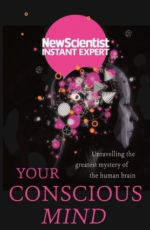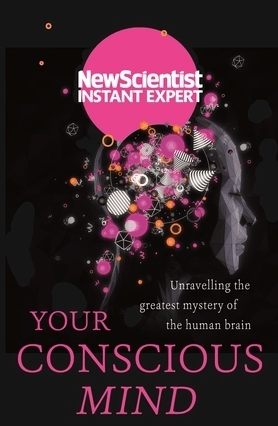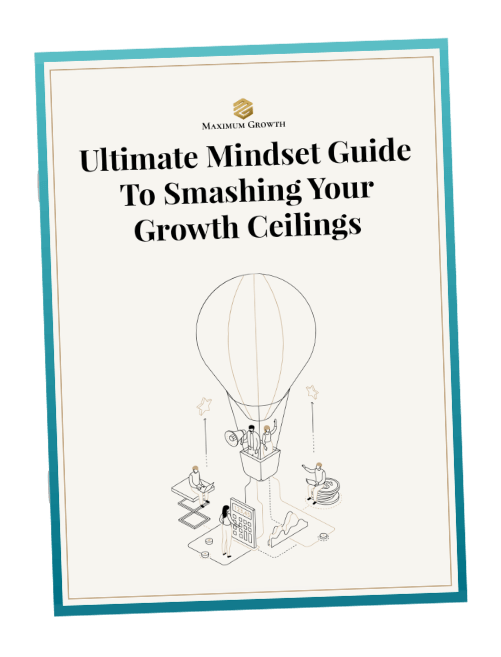
The Conscious Mind
This book is perfect for anyone who would love to unravel the greatest mystery of the human brain.
Consciousness has baffled people since the fifth century and will continue to have scientists seeking answers for a few more centuries to come. We are at the tip of the iceberg of what we know with consciousness.
In these pages, there are no clear answers, only to leave you with more questions about the conscious mind.
Renée Descates in the 17th century stated, “the conscious mind and the body are cut from very different cloth kinds”. He distinguishes between material self (the body) and the immaterial self (the mind). The body and the brain are made of matter and the mind is immaterial, something that can never be touched, observed or measured.
David Charmers, a philosopher in 1995 updated Descartes point of view and dubbed the mind as a hard problem, he states that you can see a color red but you don’t know what it feels like according to someone else’s experience. You see your dog but and you know how your dog’s brain works but you don’t know what it is like to be a dog.
This experience is called “qualia”. This is how consciousness is defined; it is your own private personal and highly subjective experience and there is no way to explain the sense of what it is like for you to anyone else, everything in the world is unique to you.
Not everyone agrees with Descartes. Some insist that there is no hard problem and disregard his ideas as one of the greatest mistakes in the history of thinking. Ultimately believing that we will be able to measure qualia and understand enough of the way the brain works to understand consciousness.
In understanding consciousness, people want to understand free will. Do we have free will? Are we really in the driver seat? Do we really make our own choices?
Free will tends to be strengthen by our morality. There is some evidence that the fear of punishment is what keeps society from breaking down. Our powerful belief in free will is bound with a fundamental desire to hold people responsible for their harmful actions.
It may turn out we don’t have the ability to choose but we will still choose to act as if we do. This is due to the readiness potential. If science could show that we are not in the driver’s seat of our own mind and life, free will would be hard to shake. This is because free will gives us a greater sense of satisfaction and self-efficiency, higher commitment in relationships and greater meaning in life. It serves as a greater purpose to humanity.
What is the consciousness?
There is matter and consciousness in the universe where one exists alongside the other, perhaps conveniently, cannot be explained in a present understanding of physics. Space if taken to the extreme, this idea can lead to paints like he’s in the view that all matter even in animate objects like rocks are imbued with some degree of consciousness.
Everything has a level of consciousness.
The brain contains at last count 19 billion neurons with so many connections between them, if you count one every second day would take you 3 million years to the task. Incredible, right?
The structure, the connectivity, the patterns, the flow, everything that makes you you.
There are curiosity surrounding the brain’s connectivity and if it does add up to consciousness is a huge question that is left unanswered. For now.
Philosopher John Locke defines consciousness as the perception of what passes in the man’s mind setting the tone for later research. In 1915 Sigmund Freud declares the subconscious to be a source of human behavior. Today, psychology refers to the subconscious as non-conscious, and preconscious or unconscious to describe what happens outside of full conscious awareness.
The first magnetic resonance imaging (MRI) scan of a human was in 1977. This method later revolutionizes the study of the living brains and helped to further our understanding of consciousness from a scientific perspective.
There are different levels of consciousness and we can differentiate between levels of consciousness. For example, being vividly awake as opposed to being under a general anesthetic. The experience will be relative to the conscious sense of self.
WHAT’S YOUR Growth Ceiling?
Growth Ceiling Definition: Invisible barriers, challenges and problems preventing you from levelling up
Fact: All business problems are personal problems in disguise
Take Our Maximum Growth Quiz To Identify Your Growth Ceiling:
In 2007 a man who had a minimally conscious state for six years recovered deep brain stimulation of his thalamus. He received treatment for almost three weeks. Within three days he was answering questions by nodding and shaking his head. A week later he tried to walk.
It’s only been tested with one person so it’s not clear if the thalamus underlines fundamental conscious awareness or helps the patient to produce behaviors that give signs that they are aware of the world around them. But there is a glimmer of possibility.
Let’s explore consciousness and our decision-making process. When it comes to decision making, the unconscious mind is the best too we have. Sleep on a decision and your brain works overtime to analyze it and comes up with an answer. Same with solving a problem or working on a new body movement. The magic happens at night while you sleep.
If you have a creative problem, it’s best to think about it, take a break and then come back to it with the hope that your unconscious mind has been working in the background for the answer.
The brain takes in so much information, more than we are consciously aware of. It is continually testing the incoming data against the stored information. It is predicting what might happen, the likelihood of the situation. Not only do we then make hypotheses of external situations, the body makes predictions based on emotional signals coming from the body.
One researcher goes as far as to say that the conscious mind is only aware of something when the unconscious mind has processed it, sorted it and deemed it relevant to be aware of. This is ultimately how your value system works, filtering the world through what is most important to you.
Yes, you do think while you sleep. I’m sure you have said to yourself that you need to wake up at 5am and bam! It’s 4:59am and you wake. A study in 1999 of 15 volunteers went to sleep at midnight and told they would be woken at 9am and did or told them they would be woken at 9am and woke them at 6am or said they would wake them at 6am and did. The last group had an increase in adrenocorticotropic from 4:30am, peaking around 6am. People woken unexpectedly at 6am had no such spike. The unconscious mind, the researchers concluded, can not only keep track of them while we sleep but also set a biological alarm to jump start the walking process. Consider setting your biologically alarm before you sleep tonight.
What about the Sci-Fi vision (we can’t call it fantasy because some of it is coming to fruition) of machine and man merging. Is it possible to build feeling and consciousness into machine?
As human beings, we don’t just act and react, we really feel; experiencing rich and vivid sensations that are more than reactions. Science has been unable to come up with a convincing explanation of why sensations feel the way they do. Some people even insist that understanding the nature of sensation is outside the realm of science. Given this, it’s tempting to think that building anything like sensations into a robot should be impossible.
One researcher states that one reason why robots cannot have broader consciousness is that they just can’t crunch enough data. Our brain is processing an extraordinary amount of information. Even three cameras can capture more data about a scene then the human eye, robotics are at a loss to how to stitch all the information together to build a cohesive picture of the world.
The experience of feel is not a mysterious byproduct of the brain but the way we interact with the world around us. For example, imagine pressing on a sponge. Where is the feel of softness generated? The traditional approach would look for the sensations in the brain, but press down on the nearest soft objects right now and it quickly becomes apparent that the softness isn’t in the brain at all; it resides in the particular characteristics of the action involved in pressing a soft object. Sensorimotor theory proposes that all ‘feels’ might be like this. The color red, the smell of an onion, the sound of the bell are all different ways of interacting with the world. If this is so, and feel is certainly something that could be experienced by a robot – it is certainly easier to achieve than sensations that mysteriously emerge from the complex activities of the brain.
Can a robot be conscious?
We have metacognition, the ability to reflect on our own knowledge. This is what makes us unique as humans.
Anything is possible.
The study of consciousness offers a chance to get to the care for what it means to be human. Questions to selfhood and freewill help us to understand ourselves as a species, why we think, feel and act the way we do.
Maybe one day in the distant future we will understand what makes the experience of red, and is my experience of seeing the colour red the same as yours.
With gratitude,


